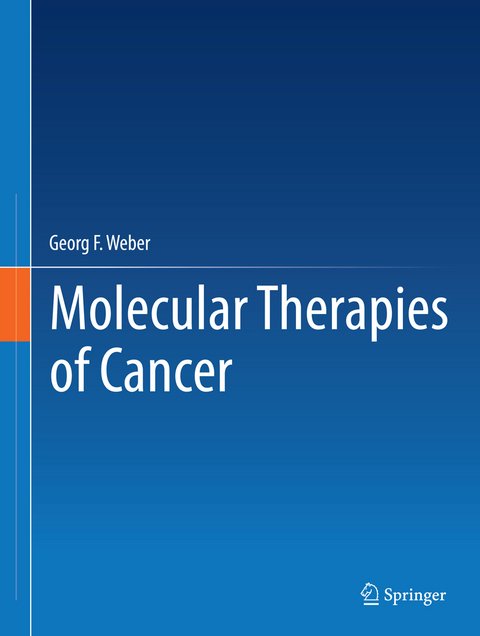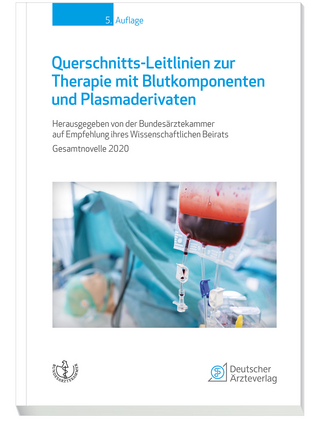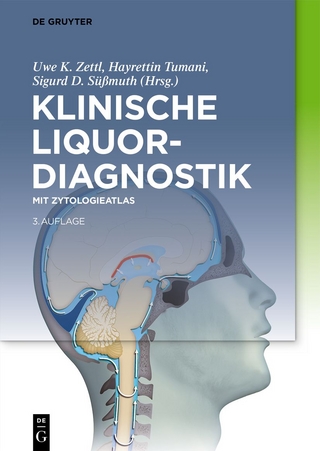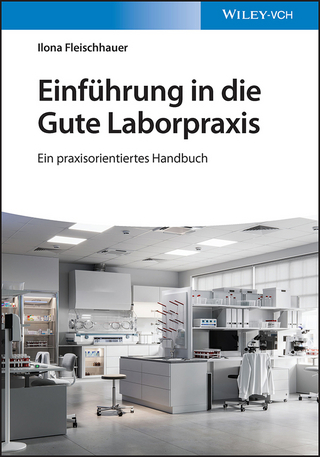
Molecular Therapies of Cancer
Springer International Publishing (Verlag)
978-3-319-13277-8 (ISBN)
Molecular Therapies of Cancer comprehensively covers the molecular mechanisms of anti-cancer drug actions in a comparably systematic fashion. While there is currently available a great deal of literature on anti-cancer drugs, books on the subject are often concoctions of invited review articles superficially connected to one another. There is a lack of comprehensive and systematic text on the topic of molecular therapies in cancer. A further deficit in the relevant literature is a progressive sub-specialization that typically limits textbooks on cancer drugs to cover either pharmacology or medicinal chemistry or signal transduction, rather than explaining molecular drug actions across all those areas; Molecular Therapies of Cancer fills this void. The book is divided into five sections: 1. Molecular Targeting of Cancer Cells; 2. Emerging and Alternative Treatment Modalities; 3. Molecular Targeting of Tumor-Host Interactions; 4. Anti-Cancer Drug Pharmacokinetics; and 5. Supportive Therapies.
Georg Weber, MD, PhD, is Associate Professor at the James L. Winkle College of Pharmacy at the University of Cincinnati. Dr. Weber has made contributions to metastasis research by discovering the interaction between the molecules osteopontin and CD44 and by defining the physiologic role of metastasis genes as stress response genes. While he continues to address fundamental questions, he is researching new venues for diagnosis and therapy of cancer progression. Dr. Weber's professional affiliations include the American Association for the Advancement of Science, American Medical Association, American Association for Cancer Research, and Metastasis Research Society. Dr. Weber has published several books including Molecular Mechanisms of Cancer, which was published by Springer.
DNA Damaging Drugs.- Drugs that Suppress Proliferation.- Molecular Inhibitors of Growth Signals.- Anti-Metastasis Therapy.- Induction of Senesence.- Combination Chemotherapy.- Gene Therapy.- Drugs with Diverse Modes of Action.- Hormone Therapy.- Immunotherapy.- Anti-Angiogenesis.- Drug Delivery and Drug Transport.- Drug Metabolism.- Prodrug Activation.- Drug Resistance.- Protection from Adverse Effects.- Pain Management.- Preventative Treatment
| Erscheint lt. Verlag | 3.8.2015 |
|---|---|
| Zusatzinfo | XV, 488 p. 120 illus., 86 illus. in color. |
| Verlagsort | Cham |
| Sprache | englisch |
| Maße | 210 x 279 mm |
| Themenwelt | Medizin / Pharmazie ► Medizinische Fachgebiete ► Laboratoriumsmedizin |
| Medizin / Pharmazie ► Medizinische Fachgebiete ► Onkologie | |
| Medizin / Pharmazie ► Studium | |
| Schlagworte | cancer drugs • combination chemotherapy • medicinal chemistry • molecular inhibitors • targeting cancer cells |
| ISBN-10 | 3-319-13277-6 / 3319132776 |
| ISBN-13 | 978-3-319-13277-8 / 9783319132778 |
| Zustand | Neuware |
| Haben Sie eine Frage zum Produkt? |
aus dem Bereich


